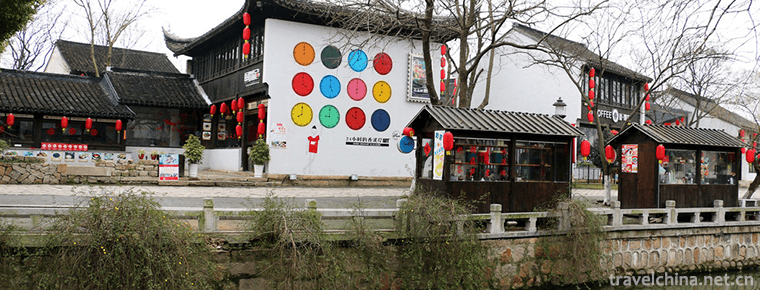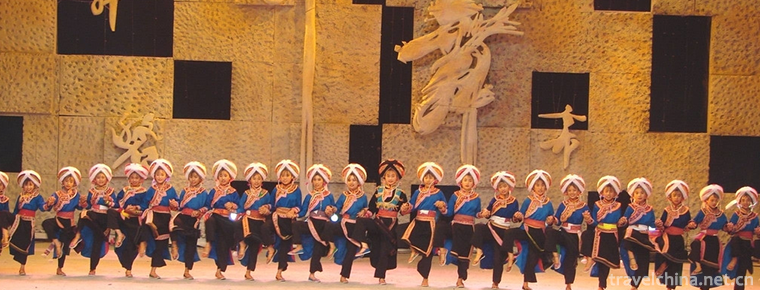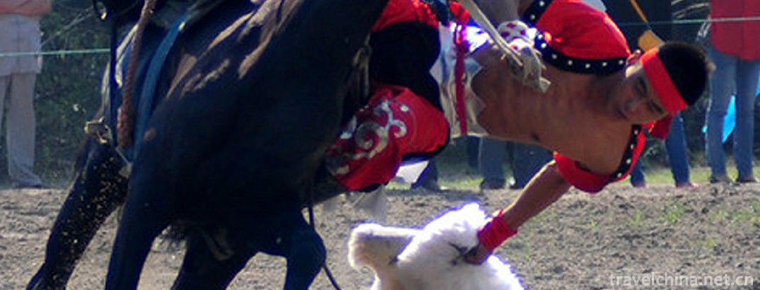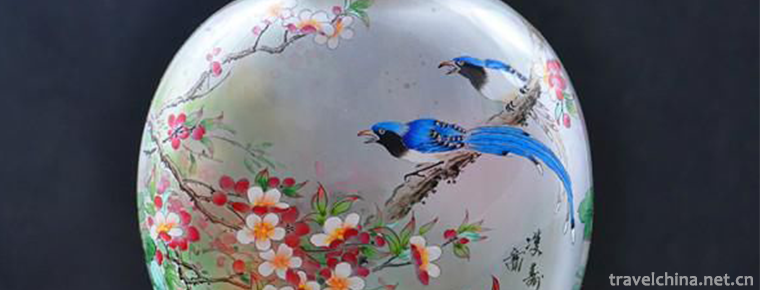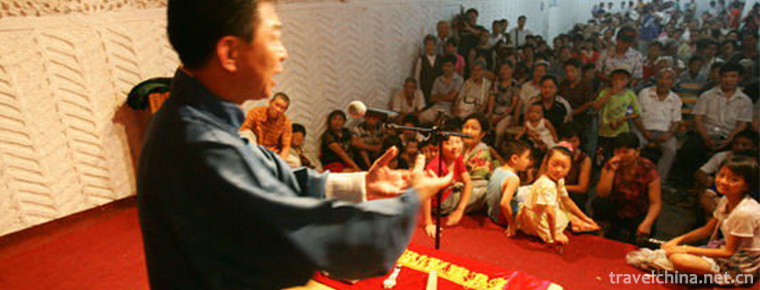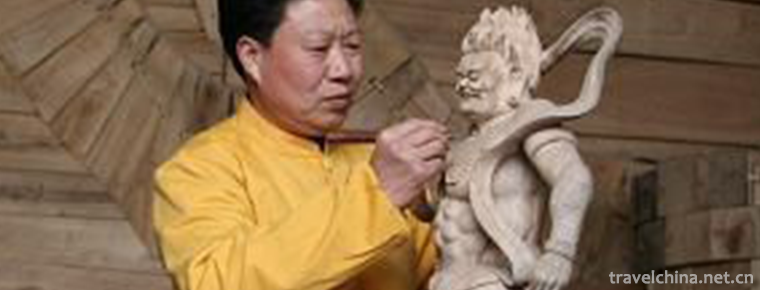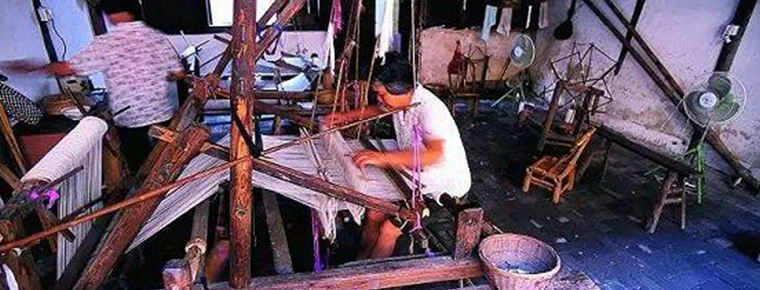Scratch sheep race
Scratch sheep race
The Naoyang Competition is a traditional Chinese folk custom activity mainly in Xinzhou City, Shanxi Province. It's a wrestling competition with a live sheep as a prize. In the countryside, "scratching" is interpreted as "carrying" and "scratching sheep" is carrying sheep and pulling them away. So "scratching sheep competition" means winning or losing sheep competition.
On June 7, 2008, Naoyang Race was approved by the State Council to be included in the second batch of national intangible cultural heritage list.
Historical Legends
The use of sheep as a prize in wrestling competitions is handed down from the Chinese people. According to legend, in the Yuan and Ming Dynasties, Xinzhou had abundant aquatic plants, which was an ideal place for sheep herding. At that time, the wrestling activities often used sheep as a bet to win or lose in wrestling. At first, there was no special organization, just wrestlers want to throw away, want to gamble, over time, it evolved into a prize for sheep and some people organized a competition.
In wrestling competitions, wrestlers usually wear wrestling clothes. In the scratching sheep competitions in Xinzhou, wrestlers do not wear wrestling clothes. They went to battle barefoot and dressed casually in long and short clothes. In the actual combat of wrestling, because the upper body is BARE-BACKED and there is no place to catch each other, they can catch each other.
Places are concentrated in the lower body, but can not grab pants, who grabbed each other's pants, even if who lost. But it's permissible to grab the belt on your pants. In the actual competition, the participants in the scratching sheep race never need to tie their belts with leather, but only use a hemp seedling silk. Once the hemp seedling silk is broken, the race must stop. Only after replacing a pair of trousers and fastening the hemp seedling silk can the race continue.
rule
The wrestlers in the scratch-sheep race win or lose by a fall. Except that the wrestlers and footboards are standing on the ground, the other parts of the body can lose as soon as they touch the ground. They don't play a round-robin race. The losers are eliminated and the winners continue to compete with the novices. If three opponents fall in succession, they will be encouraged accordingly after the match. When five opponents were thrown down in succession, the winner was regarded as a "hero" and was given considerable encouragement after the match. When the sixth opponent falls down successively, people call him a scratcher. They give the highest award to the scratcher and give the winner a big white sheep prize.
In the scratching competition, the wrestler wins five in a row and becomes a hero in people's minds. These five and six are a long-term Chinese folk custom which was formed by the Enlightenment of General Guan Yu of Shuhan in the ancient Three Kingdoms. However, it is not easy to "cut six generals through five passes". On the scratching field, both sides are attacking and both sides are defending. The wrestlers not only need superb skills, but also both sides have off-the-field guidance and use their wisdom. Often, when the wrestlers are on the same level, there is a situation of all-night struggle.
There are temple fairs in the urban and rural areas of Xinzhou, but they are bound to scratch the progress of sheep competitions, which will undoubtedly add luster to the temple fair and attract many audiences from all sides. There is a local proverb that "if you don't wrestle in a hurry, you will see fewer people, you will see fewer singing operas and wrestling, and all the villages and villages will see the excitement." In the area of Xinzhou, there are many times of meeting in a year. Within a hundred miles around Xinzhou, there are four or fifty times in a year. All these temple fairs will have sheep scratching competitions. In addition to the scratching competitions held at Temple fairs, special scratching competitions are also organized at leisure. There are local proverbs: "Autumn is set up, HOEs are hoed, melons are eaten, theatres are watched, wrestling cattle are herded". This is enough to show that farmers regard wrestling as a major event, not to be ignored. Most of the sheep scratching competitions in the leisure time after the autumn harvest are between larger villages and stronger wrestlers. Of course, this kind of competition needs to invite other villagers to be judges and notaries.
Many days before the event, the host village released the news of "scratching sheep race". The wrestling ground was chosen on a broad threshing ground or in front of the stage. A big flag and two small flags were erected on the field. On the flag, eight words were written on each side: "The hero falls innocent of falling to death". After the founding of the People's Republic of China, it was written as "peaceful wrestling, do not harm people", until today's "friendship first, competition second". Whether in the past or now, the two flags are for the wrestlers to pull out, and the people who pull the flag must be the "scratching man" who once carried the sheep. The two men who drew the wrestling flag became the representatives and masters of both sides in the wrestling competition. Of course, they also need to divide the preliminary wrestlers of Team A and Team B through the head of the host village or notaries through joint consultation. The Yuanping Temple Fair is held on July 15 of the lunar calendar every year. The sheep scratching competition was held in Yuanping Town. At that time, it will be the wrestling competitions in Xinzhou, Dingxiang and Yuanping counties. The level of these three counties'wrestling competitions is much higher than that between villages and villages, and the competitions are much more exciting. This kind of high level wrestling competition often makes the number of temple fair increase sharply, brings strong stimulation to people's spirit, and spreads sensational news in the climax of the competition.
Inheritance and Development
Local folk custom, scratching sheep race mostly in the evening, in the past lighting equipment backward circumstances, can only light, and lighting people also followed the wrestling two opponents ran around. Sometimes, wrestling in front of the stage and singing opposite to the performance of the opera, all of a sudden, the audience turned to the wrestling arena, around the wrestling arena, sitting on the ground, riding on the wall, climbing trees, sitting on bricks, stones, crowds, a pair of eyes glaring round, to the splendid spot of wrestling, cheers burst out, and a sensational storm swept over the ground. Naturally, the actors there are still performing, but they have to be distracted and squint at the wrestling results.
Competition prizes
The prizes of "scratching sheep competition", whether they are fat sheep or other prizes, are paid by the host villages and towns. Naturally, such expenditure is collective money, or the cost of raising funds.
The climax of the "scratching sheep race" is that after a "scratching sheep man" won six wrestlers in a row, people let the winner wear red flowers and send the sheep to his side, ride a big horse, circle the field for a few weeks, and eat a rich wine banquet, then be escorted out of the village to go home. At the same time, the name of the winner will be recorded in the annals of history and will be remembered for future generations.
The scratching sheep competition has been circulating in Xinzhou, Yuanping and Dingxiang for thousands of years, and has become a mass sports activity, which attracts people's attention.
Other correlations
According to legend, before the Northern Song Dynasty, people in Xinzhou Prefecture liked wrestling, but at that time, wrestling was limited to general entertainment activities. In the Southern Song Dynasty, after the murder of Yue Fei, a famous national hero and anti-Jin general, a veteran of Xinzhou nationality returned to his hometown. The veteran never forgot his ambition to resist the Jin Dynasty, so he passed on the martial arts skills of boxing and wrestling learned in the army to his local villagers. Because of the historical conditions at that time, the martial arts were prevalent, which was his skill of resisting the Jin Dynasty, and also his skill of self-defense. Over time, it became a local folk tradition. At that time, Xinzhou had abundant aquatic plants and a lot of sheep raising. Because of these conditions, it developed into a "scratching sheep competition" and flourished.
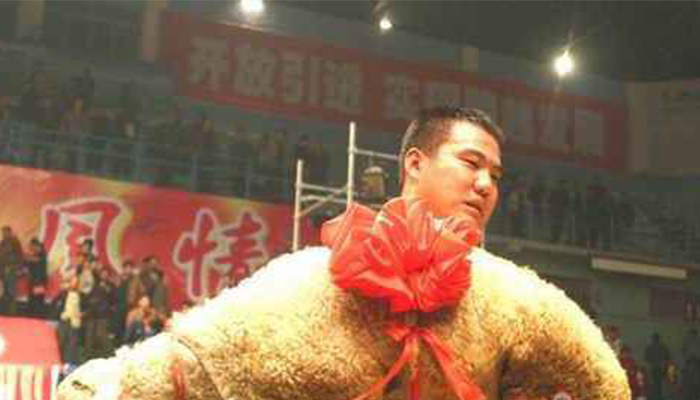
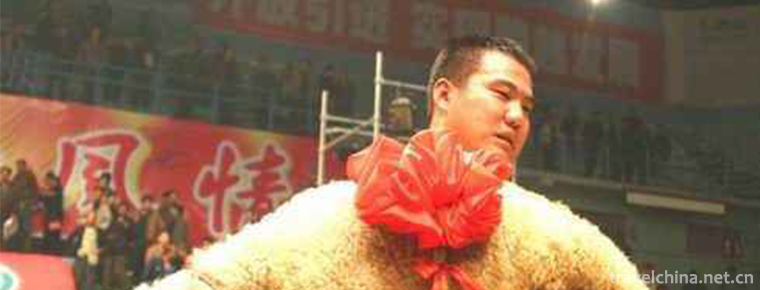
Scratch sheep race
-
Suzhou suburb mudu town
Mudu Ancient Town, nicknamed Duchuan, Xujiang and Xiangxi, is located in the southeast of Jiangsu Province and the west of Suzhou Ancient City. Located in the Taihu Lake Basin
Views: 168 Time 2019-02-07 -
Yangtze River Source of Tuotuo River
Tuotuo River: Located in Tanggula Mountain Town, Southern Region of Golmud City, Qinghai Province, it is the West source of the Yangtze River, south of the Hoh Xili Mountains.
Views: 237 Time 2019-02-22 -
Emei Chito
"A Mei Qituo" is the original ecological dance name of a group of Yi people. It is translated as "Girl Marriage Dance" in Chinese and originated from Sanbao Yi Township in Qinglong
Views: 209 Time 2019-03-28 -
Buzkashi
One of the folk sports events in Xinjiang, China. Although there is no written record of sheep on foot, it has been examined in some areas of northern Xinjiang, which has continued to this day, and is
Views: 155 Time 2019-04-26 -
Hengshui painting
Hengshui Inner Painting, a traditional folk art in Hengshui, Hebei Province, is one of the national intangible cultural heritage.
Views: 230 Time 2019-05-03 -
Sichuan Zhuqin
Sichuan Zhuqin is an ancient traditional opera. The performers hold fishing drums and rap stories. The original name is Mingqin. Because its accompaniment instrument is a bamboo drum drum, it is also
Views: 111 Time 2019-06-16 -
Skills of Dry Lacquer and Ramie in Tiantai Mountains
As early as the Eastern Jin Dynasty, dry lacquer and ramie had been used in Tiantai folk. Through the continuous efforts of the substitute craftsmen, their skills gradually matured. In the mid-Tang Dy
Views: 219 Time 2019-06-21 -
Wunijing Handmade Cotton Textile Technology
Wunijing handmade cotton textile technology has a very long history in China. Cotton and hemp textiles first appeared in the Neolithic Age. The handmade cotton textile technology in the Tang Dynasty w
Views: 176 Time 2019-06-29 -
Hydrological survey of Mianyang
Affected by the landform, Mianyang has abundant precipitation, large runoff, vertical and horizontal rivers and developed water system. There are more than 3000 rivers and gullies in the city. All rivers and gullies flow into Fujiang, Bailongjiang and Xihe
Views: 349 Time 2020-12-14 -
Biological resources of Suining
There are many kinds of biological resources in Suining. There are more than 1500 varieties or strains of biological resources found and utilized in Suining, including more than 1000 plant resources and 367 cultivated varieties of crops. The territory belongs
Views: 353 Time 2020-12-16 -
Neijiang in the new China period
From December 5 to 15, 1949, the people of Neijiang and other eight counties declared liberation one after another. In 1950, the office of Zizhong Commissioner moved to Neijiang and was renamed Neijiang special area. It has jurisdiction over Neijiang
Views: 251 Time 2020-12-16 -
Animal resources in Guangan
There are 14 families, 30 species of mammals, 11 orders, 36 families, 115 species of birds, 19 species of reptiles and 10 species of frogs in Guang'an City. The national first-class protected birds include the Tragopan, which is mainly distributed in the forest area of H
Views: 154 Time 2020-12-19
